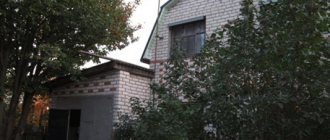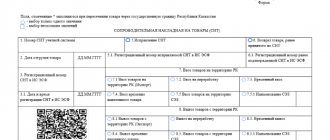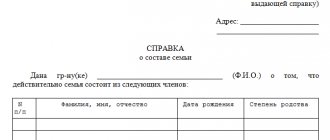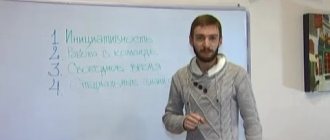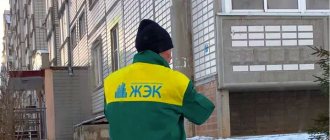What is SNT: definition of the term
SNT is an abbreviated name for a form of association of citizens created to solve current problems in the horticultural process.
Such an organization must be registered with the tax authorities. It is imperative to develop a Charter as a tool for resolving controversial situations.
The members of the association are the owners of individual plots who make voluntary contributions to the general goals of the organization.
SNT has its own land and the necessary infrastructure (roads, water supply, communications for various purposes).
How is it deciphered?
SNT literally stands for “horticultural non-profit partnership.”
In other words, this is a voluntary association of summer residents, the purpose of which is to jointly resolve issues related to the exploitation of land plots legally.
SNT members use the land in accordance with the association's charter: plant trees, grow fruits and vegetables.
The construction of a house and adjacent outbuildings is allowed. The law provides for registration at the location of the dacha, but only if the constructed structure is suitable for habitation.
Legal entity or not?
SNT is a non-profit organization. The purpose of the creation is to jointly solve the problems of proper gardening. According to the Federal Law on Dacha Associations of Citizens, such organizations are subject to mandatory state registration in the manner prescribed for legal entities.
What is the difference between SNT and ST?
Historically, the creation of SNT was preceded by another form of association of gardeners - ST. They entered into such partnerships in order to receive from the state a plot of land (no more than 8 acres) with a country house located on it. There was no other option to acquire country real estate. ST members were responsible for making contributions, and the board of the partnership collected utility bills.
The concept of “SNT” appeared in 1998 as a new form of legal entity. According to regulatory act No. 66-FZ, the previously existing STs were to be reorganized into non-profit associations.
Nuances of accounting for fixed assets in SNT
Accounting for fixed assets (Fixed Assets) is regulated by FSBU 26/2020 “Fixed Assets”, which has been in effect since 2022. Until the end of 2021, PBU 6/01 “Accounting for fixed assets” was in force.
From 01/01/2022, PBU 6/01 and Methodological guidelines for accounting for fixed assets, approved by order of the Ministry of Finance of the Russian Federation dated 10/13/2003 No. 91n, were replaced by 2 new FSBU 6/2020 “Fixed assets” and 26/2020 “Capital investments”. ConsultantPlus experts explained in detail what has changed in the accounting procedure for fixed assets due to the entry into force of new standards. Get free demo access to K+ and go to the Ready Solution to find out all the details of the innovations.
According to clause 4 of FSBU 6/2020, non-profit organizations (hereinafter referred to as NPOs) accept fixed assets for accounting if the object is used in activities aimed at achieving the goals of creating an NPO, including business activities. The following conditions must also be met at the same time:
- the period of expected use of the OS object is more than a year;
- the object was purchased for the purpose of further use and not for resale.
An asset is accepted for accounting at its historical cost, which is the sum of the amounts of capital investments incurred in the process of acquiring, constructing or manufacturing the asset. These include amounts paid to the seller under the purchase and sale agreement for the property, as well as transportation costs, information and consulting services, non-refundable taxes, etc.
NOTE! If a fixed asset is acquired strictly for non-commercial activities (that is, they do not plan to associate the receipt of VAT-taxable revenue with its use), then the amount of input VAT is included in the cost of the object (clause 2 of Article 170 of the Tax Code of the Russian Federation).
All costs for the acquisition of an asset are collected on account 08 “Investments in non-current assets”, and upon commissioning of the asset, account 08 is credited to the debit of account 01 “Fixed assets of the organization”.
The wiring looks like this:
Dt 08 Kt 60 - an asset was purchased from the seller (including VAT amounts);
Dt 08 Kt 60, 76 - reflects the direct costs of purchasing an asset (transport, consulting, etc.);
Dt 01 Kt 08 - the asset was put into operation;
IMPORTANT! The use of funds from targeted contributions for capital investments should be reflected using account 83 (according to the instructions to the Chart of Accounts, approved by order of the Ministry of Finance of the Russian Federation dated October 31, 2000 No. 94n).
Dt 86 Kt 83 - targeted funds aimed at capital investments are taken into account as an increase in additional capital;
Dt 83 Kt 01 - reflects the disposal of a capital investment item purchased using targeted proceeds.
All operations involving the movement of OS objects are documented with primary documents. For which ones, see the material “Documentation of the movement of fixed assets”.
In accounting, fixed assets, based on a valuation approved by the organization independently, can be taken into account as part of the inventory (clause 5 of FSBU 6/2020 “Fixed Assets”, effective from 2022). Until the end of 2021, the limit on the cost of fixed assets for accounting purposes was 40,000 rubles.
Find out how to independently set a limit on the cost of fixed assets in accounting in accordance with the new FSBU 6/2020 “Fixed Assets” in the Ready-made solution from ConsultantPlus. If you do not have access to the K+ system, get a trial demo access. It's free.
When disposing of fixed assets acquired through targeted financing, the sources of financing are not repaid and are not taken into account in the financial results of the company. In accounting, such an operation is recorded as Dt 83 Kt 01.
Moreover, if SNT acquired an asset using funds from business activities and uses it to generate income, then depreciation is charged on this property and it is accounted for separately from the target property. Depreciation in this case is written off as expenses by posting Dt 20 (26) Kt 02.
If SNT received an asset at the expense of targeted funds, but uses it in commercial activities, then the cost of the asset is recognized as income of the non-profit organization (clause 14 of Article 250 of the Tax Code of the Russian Federation). The cost of property in this case is repaid by calculating depreciation (clause 1 of Article 252 of the Tax Code of the Russian Federation).
How to open SNT?
To open an SNT, you must first submit an application to government agencies.
Land for such purposes is allocated in accordance with the zoning criteria of the territory. As a legal entity, a gardening partnership must be registered with the appropriate authorities. Without this procedure, the organization will not be granted any rights.
True, the process may drag on for a long time due to the need to comply with a number of formalities: approval of a development project, transfer of land into the ownership of SNT, selection of founders.
Features of registering a “country” house in 2018
Since 2021, Federal Law No. 93-FZ “On amendments to certain legislative acts of the Russian Federation on the issue of registration in a simplified manner of citizens’ rights to certain real estate objects” has been in force. This law helps to formalize the right of ownership of a privatized object in a simplified version, i.e. It is possible to register the purchase of housing in a garden partnership as an object at the construction stage. But it is possible that a fine of 4,000 rubles may be imposed if the owner delays the housing registration procedure for a long time.
For owners of plots of dacha associations, a simplified option for the privatization of residential buildings is valid until December 31, 2021. And for citizens who received land in their own possession before October 30, 2001, there are no time restrictions.
Also, from 2021, according to changes made to the legislation, the procedure for registering housing in SNT has become more complicated. Previously, it was only necessary to fill out a declaration; now it is necessary to provide a technical plan of the facility, drawn up by specialists from the Bureau of Technical Inventory (BTI).
To avoid being deceived, you need to contact licensed organizations. On the official website of the territorial cadastral service you can find a list of such legal institutions. Drawing up a technical plan will take about 10 days and cost 8,000 rubles.
To register a land plot and buildings, the following documents are required:
— owner’s passport;
— document confirming land ownership;
— technical plan;
— receipt for payment of state duty;
- cadastral plan of the site.
They may not register your home in the partnership only if the information provided about the boundaries of the land plot and the area of the home, with adjacent outbuildings, does not coincide with the declared ones. And also if the authenticity of any documents is in doubt. In this case, you will either have to redo the document or make amendments with additional certificates.
Charter of the partnership
The creation of a gardening partnership involves the development and approval of a Charter regulating the actions of the society and its members. This document sets out the rules and principles of SNT activities. The charter must contain the following information:
- name of the association;
- location address;
- legal form;
- actual and maximum allowed number of members, their rights and obligations;
- amounts and procedure for making mandatory contributions;
- management structure;
- the total area occupied by land plots.
Refusal
The reason that it is impossible to transfer a section of SNT to individual housing construction in a particular case may be as follows.
- This area is encumbered regarding the issue of changing the category.
- The allotment does not correspond to the education development plan, and for one reason or another it is impossible to connect it to the settlement.
- Some documents need to be brought.
Controls
The management of the partnership is carried out by a chairman elected at a meeting of all members.
The “first person of SNT” is subject to certain requirements: experience in gardening, knowledge of all the intricacies of office work, legal literacy, and the ability to ensure fire safety. The direct responsibilities of the chairman include:
- monitoring the work performed by other employees;
- conclusion of contracts;
- opening accounts in financial institutions;
- timely notification of SNT members about current events.
At the first meeting, authorized persons are also elected who, along with the chairman, are responsible for the safety and maintenance of the partnership’s property and land in proper condition.
Land for gardening: legal features
Often people purchase land in SNT exclusively for housing construction. On average, the category of land for gardening provides obvious price advantages: plots for individual housing construction (individual housing construction) are an order of magnitude more expensive. Commercial suburban real estate is now widely represented by various cottage villages. Is there a difference and does it make sense to pay more? A garden plot of land is an allotment that has a purpose: cultivating the land and growing crops on it. But there is no direct ban on erecting residential buildings on it! Moreover, it is allowed, but with some restrictions.
The main difference from land for individual housing construction is that in cottage villages, already during the design, all important engineering communications and a developed infrastructure network are laid out. This, of course, is a significant plus, but only fairly wealthy people can afford it. Payment for the maintenance of all these communications sometimes results in round sums, the connection of utility networks requires approvals, the use of the house requires permission to put it into operation.
Basically, horticultural lands are classified as agricultural lands. In theory, this category can be changed, but is it really that important?
An important aspect is not so much the category of land as the collective management order in horticulture. The procedure for discussing and making decisions is enshrined in the Charter; when a decision prescribes a certain norm of behavior, then it must be obeyed, otherwise sanctions may be received. But, on the other hand, membership fees are usually significantly lower than payment for the services of some service and management department in the village of individual housing construction.
You can register in a newly built residential building on individual housing construction lands. But the law also allows you to register at the address of a house on the SNT site upon completion of its construction.
Thus, the only significant drawback may be the not very developed infrastructure. But since there are now many offers for the sale of gardening plots, the best option can be found!
Contributions
Members of the gardening partnership are responsible for paying the following types of mandatory contributions:
- share - upon joining SNT, for the acquisition of material assets for the entire organization (in value equal to five membership fees);
- membership - for remuneration of employees of the partnership, making utility payments and current expenses, the amount depends on the number of land plots;
- targeted - based on a decision made at a meeting to solve a specific problem;
- additional - in force majeure situations.
Accounting for target funds in SNT
The SNT budget is formed from funds contributed by SNT members.
NOTE! From 01/01/2019, SNT can accept contributions from participants only to a current account, not to the cash desk (Article 14 of Law No. 217-FZ). CCT is not used when accepting contributions. Contributions are not payment for goods, work, services, and therefore do not fall under the concept of “settlements” in the sense of the Law “On CCP” dated May 22, 2003 No. 54-FZ. Similar explanations are given in the letter of the Ministry of Finance dated September 11, 2018 No. 03-01-15/65041 regarding targeted contributions to TSN.
Such contributions include:
- membership fees - funds periodically paid by members of the association, which are allocated for the current expenses of the organization;
- targeted contributions are funds that can be used to purchase public facilities.
NOTE! As of January 1, 2019, SNT no longer collects entry fees from participants. Entry fees paid earlier are not returned to participants (Clause 31, Article 54 of Law No. 217-FZ).
How to organize accounting for target financing for profit taxation is explained in detail in the Ready-made solution from ConsultantPlus. Get trial access and access the material for free.
In accounting, account 86 “Targeted financing” is used to reflect the movement of these contributions. To divide contributions, it is more convenient to enter separate subaccounts, for example, 86.1 “Membership fees”, 86.2 “Target contributions”. To account for mutual settlements with SNT members, account 76 “Settlements with various debtors and creditors” is used.
SNT receives and spends funds on the basis of the income and expenditure estimate approved at the general meeting by the members of the partnership (Clause 8, Article 14 of Law No. 217-FZ). Contributions can be spent strictly on a specific budget item. There is no unified form of estimate, and the management of the partnership develops it independently.
Expenses incurred can be reflected in the debit of standard cost accounts (20, 26), but it is also possible to immediately reflect in the debit of account 86, bypassing cost accounts, with the choice of subaccount depending on the type of costs.
Example
The estimate of SNT "Romashka" provides for the following payments: membership fees - 150 rubles. per hundred square meters, targeted contributions for equipping a waste collection site - 1,000 rubles.
SNT "Romashka" accepted a new gardener as a member - N. A. Fadeev. His plot is 5 acres. He made all contributions to the association's cash desk: 750 rubles. (150 × 5 cells) - membership; 1,000 rub. - targeted. The accountant reflected these contributions in accounting as follows:
Dt 50 Kt 76 — 1,750 rub. - contributions from Fadeev N.A. arrived at the cash desk.
Dt 76 Kt 86.2 — 750 rub. — membership fees are accrued as part of targeted funds;
Dt 76 Kt 86.3 — 1,000 rub. — target contributions have been accrued.
For the month, SNT “Romashka” incurred the following expenses:
Dt 86.2 Kt 70 - 15,000 rub. - remuneration of the chairman and accountant;
Dt 86.2 Kt 69 - 4,500 rub. — contributions from the payroll;
Dt 86.2 Kt 71 — 500 rub. — stationery purchased;
Dt 86.3 Kt 10 - 23,800 rub. — materials and tanks for waste site equipment were written off;
Dt 86.3 Kt 60 - 3,200 rub. — services for installing a fence and concreting a waste site.
You can find out what kind of reporting to submit to SNT for targeted financing from the Typical Situation from K+, having received free access to the system.
Member Rights
Members of the SNT have the fundamental right to build residential buildings on their plots with subsequent registration at their location.
As for participation in solving the problems of society, each member has the right to only one vote, regardless of the number of plots occupied. In addition, gardeners can:
- take part in meetings;
- elect a chairman and nominate oneself for the role of manager;
- require reporting on the work done by employees of the partnership;
- carry out activities on your property that are not prohibited by law;
- dispose of owned property at its own discretion;
- freely use the infrastructure and communications of SNT;
- have free access to your site;
- leave the association of gardeners;
- become an employee of the partnership if there is a vacancy.
Results
The activities of gardening non-profit partnerships are in a special legal field and are regulated by a special federal law.
The status of an organization’s activities also determines the specifics of its taxation. SNT is not exempt from paying income tax, VAT, etc. But when calculating these taxes, the database does not include targeted funds aimed at carrying out the statutory activities of the partnership.
SNT also has the right to apply the simplified tax system. In this case, a special feature is the exclusion of amounts of target funds from income for the purposes of taxation of the simplified tax system.
Due to the fact that targeted funds are not taken into account for tax purposes, SNT needs to organize separate accounting of income and expenses by allocating a special account 86 “Targeted Financing” for this purpose.
You can find more complete information on the topic in ConsultantPlus. Free trial access to the system for 2 days.
Leaving the gardening partnership
Any member of the SNT can withdraw from its membership. At the same time, the right to land allotment is retained. You can also continue to use the infrastructure and communications of SNT for the purpose of carrying out gardening activities.
The obligations to attend meetings, obey the decisions of the association, participate in socially significant events, and pay dues disappear.
The following obligations arise. An individual gardener must:
- pay for utilities in accordance with the current agreement with SNT;
- make payments for the use of the partnership’s infrastructure;
- demand a share in the property of the association commensurate with the contributions previously made.
Features of accounting in SNT under the simplified tax system
In order to reduce the tax burden and be exempt from paying VAT (except for import VAT), income tax and property tax (except for real estate, the value of which is determined by Roskadastre), SNT for commercial activities has the right to choose a special regime in the form of a simplified tax (subclause 14 Clause 3 of Article 346.12 of the Tax Code of the Russian Federation), choosing one of the available options for the object of taxation: income or income minus expenses.
In this case, accounting for targeted revenues and expenses is also kept on account 86 “Targeted Financing” and is not subject to taxation (subclause 1, clause 1, article 346.15, clause 2, article 346.16 of the Tax Code of the Russian Federation).
Accounting for income and expenses from commercial activities is carried out in the book of income and expenses using the cash method (Clause 1, Article 346.17 of the Tax Code of the Russian Federation).
Pros and cons of such areas
The success of any organization depends on the abilities of its leader. If SNT is headed by an intelligent chairman, there will be only positive reviews about the partnership. The advantages of an association of gardeners include:
- presence of security;
- well-groomed territory;
- high quality access roads;
- the possibility of building a residential building on your own site with the prospect of further registration.
Along with the advantages, there are also disadvantages:
- a large number of additional fees;
- not always developed infrastructure;
- the occurrence of obstacles during the registration of property rights.
The nuances of buying a house in a gardening partnership
Before purchasing a home in an association, be sure to check all documents. There are cases when the owner rebuilds or completes something, but does not document it. Check whether there are third parties' ownership rights to the property; to do this, ask the seller for an extract from the Unified State Register. Also check the property rights of the owner of the house and make sure that there are no debts for utilities.
Another important point when buying a plot when there is no land survey. Be sure to carry out the surveying procedure to mark the boundaries of the land plot and keep in mind that this procedure will take up to two months.
If you decide to purchase a plot of land and decide to build your own house, you will have to apply for a permit to build a house in SNT. But if the building is no higher than three floors and more than three meters from the border of the neighboring land, then a building permit is not required.
